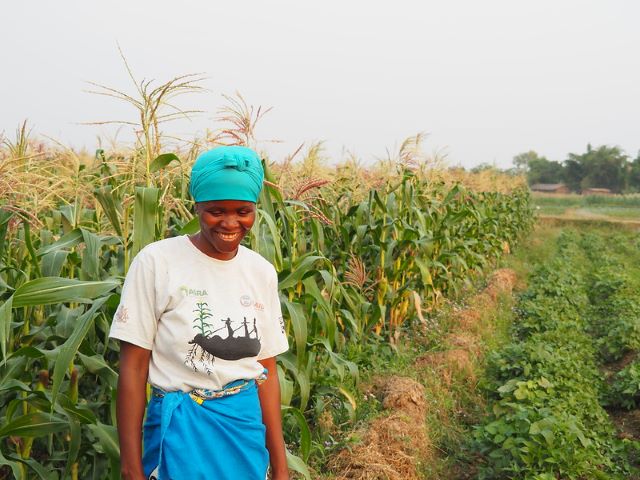Agriculture: TechnoServe is Alleviating Poverty
 Nearly two-thirds of developing countries rely heavily on the economic profit of agriculture to support local financial infrastructure. The industry holds high profitability but farmers rarely have the means to create a profitable business. TechnoServe works closely in agricultural advancements, creating capitalizing markets for countries to grow upon. Technoserve is alleviating poverty through its initiatives in the agricultural sector.
Nearly two-thirds of developing countries rely heavily on the economic profit of agriculture to support local financial infrastructure. The industry holds high profitability but farmers rarely have the means to create a profitable business. TechnoServe works closely in agricultural advancements, creating capitalizing markets for countries to grow upon. Technoserve is alleviating poverty through its initiatives in the agricultural sector.
Training Skills for Farmers
Kenya, Haiti and Zambia are some of the many developing countries rich in natural resources that are in high consumer demand, such as mangos and cashews. The support and training skills implemented by TechnoServe work to profit on the supply and demand. These natural resources could provide significant economic growth if farmers are given the skills to create a profitable business. Technoserve has partnered with nearly 4,000 businesses and upwards of 300,000 farmers each year.
TechnoServe’s mission is to implement training methods that these regions lack, such as skills in management training, finance and secure markets that are needed to create profitable enterprises. The implementation of training skills and knowledge allows individuals and communities to continue to carry the skills for a lifetime.
TechnoServe has made a lasting impact for millions of individuals and in 2019 it was rated the number one nonprofit fighting poverty by ImpactMatters.
Focusing on Women’s Empowerment
The annual report from 2019 reveals an increase in entrepreneurship for farmers and women, highlighting specific countries, and more specifically, women’s impact. In 2019, 38% of beneficiaries were women or women-owned businesses. Overall, 317,493 individuals and companies, as a result of Technoserve’s help, display increased profitability and financial benefits of $200,579.
In developing countries, women face gender barriers that are disproportionally more likely to affect them. Women’s economic empowerment is vital for alleviating poverty and creating employment opportunities. Investing specifically in women’s economic opportunities, such as access to training, knowledge and resources, could impact farm production up to 30%, allowing for increased employment opportunities. Studies estimate that this change could impact the global GPD by 26%, or $28 trillion.
Women in Business (WIN)
Working closely with businesses and organizations, Technoserve is alleviating poverty by proactively working to create social equity within communities. Breaking the barrier of gender inequality to empower women-run institutions through funding and support, improves the quality of life and financial status. For instance, Technoserves five year program designed for women, called Women in Business (WIN), focuses on female entrepreneurs in Mozambique. Similar training is also provided for men through Technoserve, to create complete gender balance.
“More than three-quarters of economically active Mozambicans are involved in small and informal businesses, 60% of whom are women.” Despite most business owners being women, their businesses are less likely to employ as many people and are relatively smaller than their male counterparts. Highlighting gender barriers, women face higher demands at home due to families and are not likely to receive the same networks, information and opportunity. The WIN program utilizes a market systems approach to produce partnerships with private sector companies, associates and service providers, to create an inclusive market for women. WIN is able to provide these women resources through the partnership established with the Swedish International Development Cooperation Agency (Sida). Sida assists TechnoServe’s initiative through funding, providing resources such as creating employment opportunities, equipment, financial services and products needed.
Overall, TechnoServe is alleviating poverty with initiatives in the agricultural industry and acknowledges the important role of women in this endeavor.
– Allison Lloyd
Photo: Flickr
